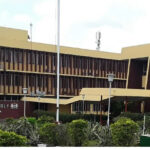
The senator who decried the situation noted that the security sector had a huge allocation in the 2024 appropriation act to enable the various security agencies to deliver on their mandate of protecting lives and properties.
Despite allocating N3.25trn for national security out of the total N28.7trn budget, insecurity continues to persist in various regions of the country.
According to a Civil Society Organisation, Enough is Enough, there were approximately 245 reported kidnapping cases with over N6bn ransoms demanded by kidnappers in January 2024.
Speaking at a stakeholders’ dialogue on the State of Human Rights in Nigeria, organised by the Policy and Legal Advocacy Centre in Abuja on Monday, Monguno said the primary responsibility of the government is to provide adequate security to the citizens, adding that to address the insecurity in the country, the National Assembly allocated a large percentage of the budget to the security sector.
He said, “I want to assure you that the 10th National Assembly is a very responsible and responsive assembly to the yearnings and aspirations of the people. We feel the pains of Nigerians that we are representing as a result of the problem of insecurity in the country.
“And the Senate, in order to address this problem in the 2024 Appropriations Act, has made robust provisions to the security sector because the security sector got the highest amount of allocation because the National Assembly is desirous of giving all the wherewithal and the necessary input for them to be able to discharge their constitutional mandate of protecting the lives and properties of Nigeria to grantee peace order and good governance.
“Security is the primary responsibility of government. And that is the social contract that the government has with the people. That is the primacy of governance and because of that, the National Assembly appropriated the highest amount of money to the security sector.”
Monguno, however, vowed that the national assembly would intensify its oversight functions to ensure the judicious utilization of the funds.
“And we are also going to double on our oversight functions, to oversight the security agencies that are charged with the responsibility of guaranteeing our security to make sure that these funds are judiciously utilized for the benefit of Nigerians.”
The Executive Director, PLAC, Clement Nwankwo lamented that despite the ENDSARs protest which occurred in 2020, human rights challenges remained in the country.
He said, “The challenge of human rights in Nigeria remains. Some of them are institutional, some of them are behavioral, and others are human-made. Those challenges continue to pose obstacles to the exercise and human rights in the country.
“We see the abuses that come with citizens interaction with the police, we saw the circumstances that led to protests in 2020, and we saw the commitments of government agencies to address the problem raised for it. Unfortunately, they continue to operate in ways that do not help citizens to exercise the full value of rights recognised in the Constitution. ”
Executive Secretary, of the National Human Rights Commission, Anthony Ojukwu(SAN) said to boost the nation’s Foreign Direct Investment, the government and its agencies must obey court orders.
He noted that disobeying courts sends a wrong signal to foreign investors.
Ojukwu said, “Disobeying court orders has implications on our FDI. They will believe if their rights are infringed and they go to court the orders might not be obeyed. And as such they will not get the remedy they seek. ”
He also backed the call for the establishment of state police, allaying fears that it would be hijacked by governors.
Ojukwu added, “We should have state police. If we establish one are we not going to prescribe how they will operate?
We need security. Look at the large number of ungoverned spaces we have, state police will go a long way to help in securing those areas. “





